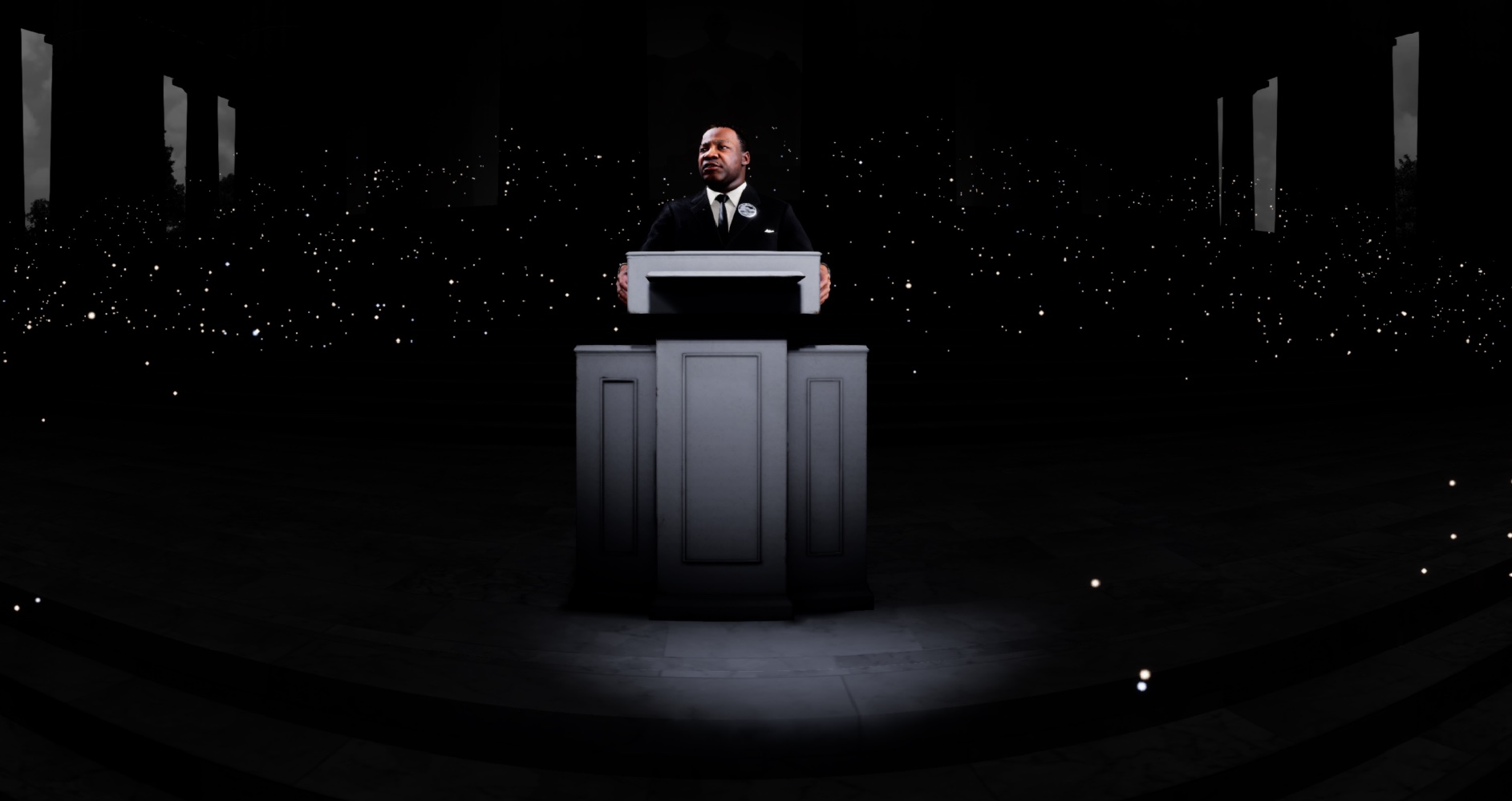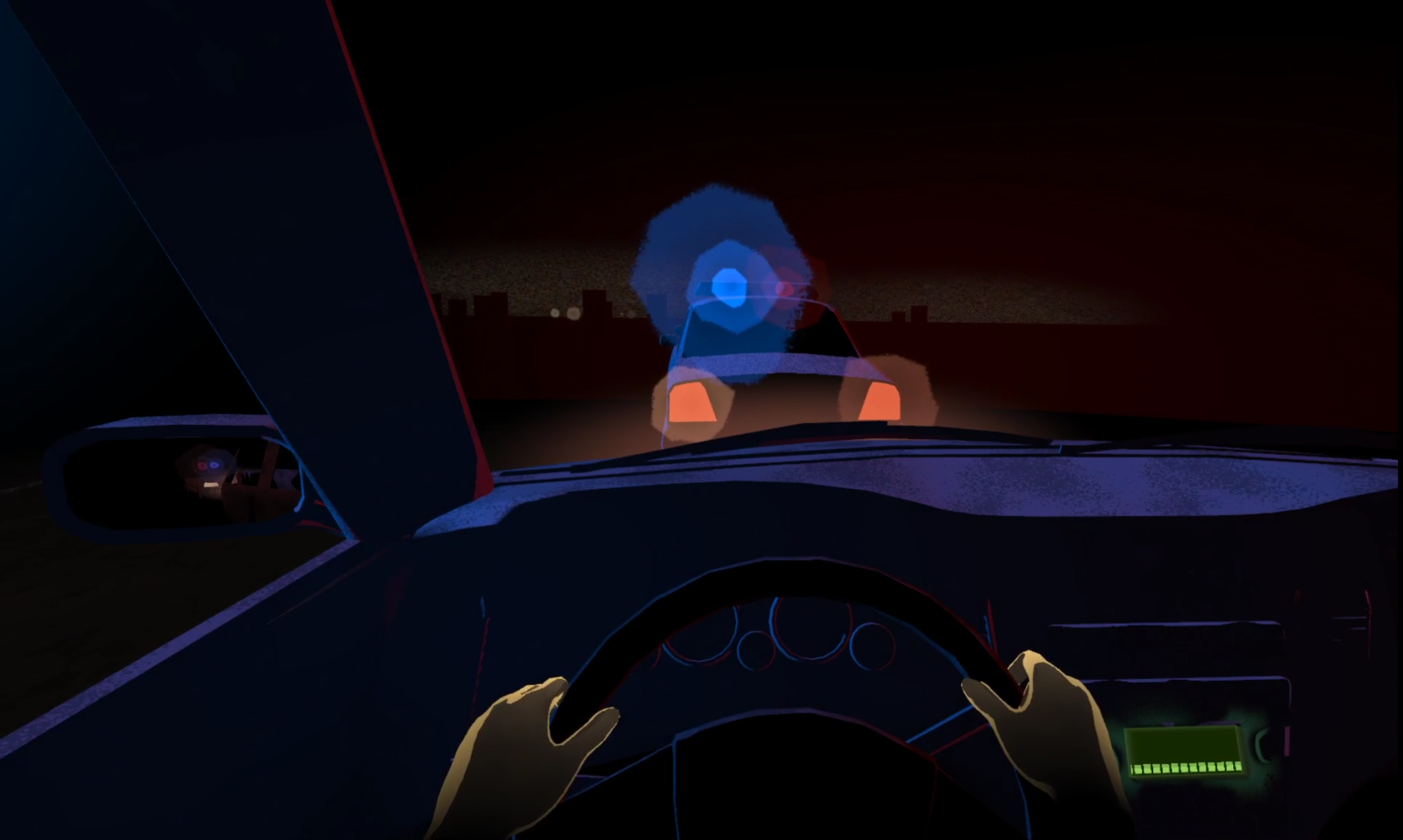
Martin Luther King Jr.’s 1963 “I Have A Dream” speech is too often reduced to just that one emblematic line: a hazy wish for a distant, racism-free future. In reality, King’s speech, like many of his orations, was blistering and urgent, dealing not in dreams but cold, hard realities about America.
A new project from TIME Studios, released on Thursday Jan. 12, allows users to explore the relevance and power of King’s “Dream” speech sixty years later through virtual reality. The project, an interactive experience called “MLK: Now Is The Time,” drills down into some of King’s themes, showing how the same injustices he railed against still oppress BIPOC people in America. “Now Is The Time” follows a previous TIME Studios project, “The March 360,” which is now also available on Meta Quest, and enables viewers to see King’s speech as if they were standing on the National Mall in Washington D.C. As a whole, the experiences make the case that King’s famous speech isn’t just a series of vague platitudes or the eulogy for a racist American past, but a set of unresolved grievances that have only grown in relevance.
As a user, I came away from the experiences both impressed and frustrated: I found them thematically and viscerally powerful in parts, but was also distracted by its uncanny valley visuals—the eerie feeling that I was watching avatars very close to human, but not quite the real thing.
Both experiences are accessed through Meta Quest headsets. The first, “MLK: Now Is The Time,” can be downloaded from the Quest store. It’s an interactive experience that uses King’s words as entry points into conversations about how racist housing, voting and policing policies have resulted in the entrenchment of the country’s racial inequalities. While it’s one thing to read about voter suppression, it’s another to try to grab a ballot that floats out of reach, or play Monopoly with the deck stacked against you—both of which are elements of the interactive experience.
Limbert Fabian, the project’s director, chose to draw primarily not from the more famous second half of King’s speech about his “dream,” but its more scathing first half, which describes the many specific systemic injustices faced by African-Americans. “MLK was upset, and he was telling us, ‘We should be upset. We need to act better and do better,’” Fabian tells TIME. “I thought there was a potential to take the part that comes off a little angry and demanding, and make that tangible.”
Read More: Don’t Forget That Martin Luther King Jr. Was Once Denounced as an Extremist
The most harrowing part of the experience places you inside a car after you are pulled over by a police officer. The section draws on King’s condemnation of police brutality: “Some of you have come from areas where your quest for freedom left you battered by the storms of persecution and staggered by the winds of police brutality,” he said in the speech. “You have been the veterans of creative suffering.”
In the VR experience, you’re sitting in the dark, with the red police light flashing ominously on your windshield, and told to keep your hands on the wheel. But if you move your actual hands from this position, you’re immediately swarmed by policemen, who shine flashlights in your eyes, grip the guns on their belts and shout that it looks like you’re reaching for something. “I wanted to put the audience in a place so they get a sense of what it feels like to be in that moment,” Fabian says. “I wanted to make it a very internal thing looking out.”

The second experience, “The March 360,” is an adaptation of the interactive experience and museum exhibit that debuted two years ago in Chicago. It can be accessed by searching for it in the Quest TV app, and will also appear periodically on Horizon Venues, which is the live events wing of Meta’s social media metaverse platform, Horizon Worlds. The experience transports you to Washington D.C. on August 28, 1963, placing you at various vantage points in the crowd of 250,000.
“When you watch these stories, they’re more powerful…because you’re actually experiencing them instead of reading about them,” Alton Glass, who co-created The March with TIME’s Mia Tramz, told TIME in 2020.
Read More: How TIME Re-created the 1963 March on Washington in Virtual Reality
Personally, however, I found this experience less effective than “MLK: Now Is The Time.” While painstaking work went into rendering hundreds of protesters with era-appropriate dress and body-language, they looked and moved like extras, their arms hovering over their stomachs. King’s facsimile looked impressively photographic from some angles. From others, however, he looked like a character in a video game: His eyes beady, his forehead shiny, and his speech slightly out of sync from his mouth. The small discrepancies removed me from the reality of the historical event as opposed to immersing me more deeply in it.
While I didn’t find watching the speech in this VR re-creation better than simply watching the grainy footage of the speech on YouTube, it still offers a technologically innovative way to galvanize widespread interest in a crucial historical moment, and could be a good way to spark the curiosity of a new generation. Fabian says he hopes “MLK: Now Is the Time” will be used in classrooms, and that it will help forge a direct link between King—often defined solely for his pacifism—and Black Lives Matter, which has often been denounced as radical.
“I really don’t want this to be a surrogate for activism, but maybe it could be a peek at how you could participate if you’re interested in this conversation,” he says. “Hopefully, we’re bringing awareness that the people on the frontlines engaging and trying to make change for all of us are fueled by the thoughtful and intelligent approach of a person like Dr. King.”
More Must-Reads from TIME
- Cybersecurity Experts Are Sounding the Alarm on DOGE
- Meet the 2025 Women of the Year
- The Harsh Truth About Disability Inclusion
- Why Do More Young Adults Have Cancer?
- Colman Domingo Leads With Radical Love
- How to Get Better at Doing Things Alone
- Michelle Zauner Stares Down the Darkness
Contact us at letters@time.com